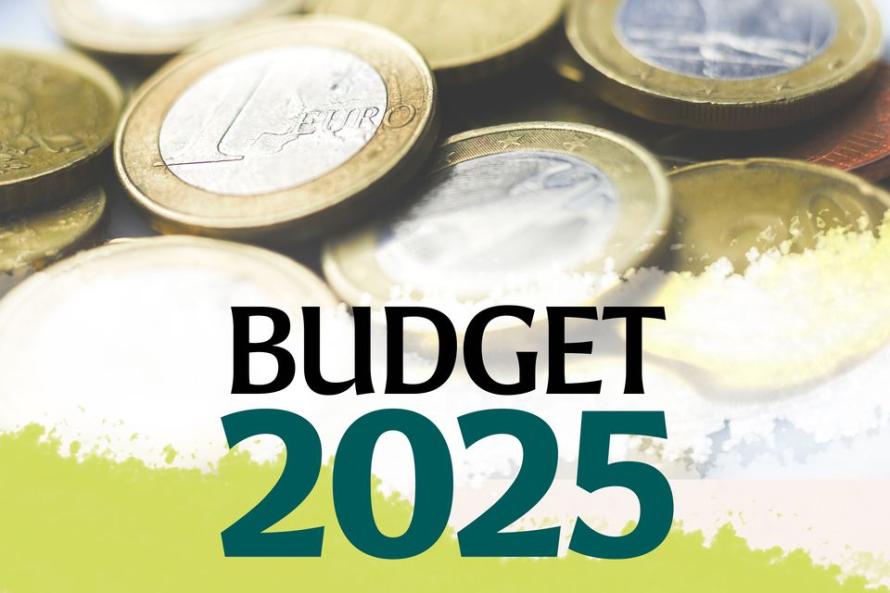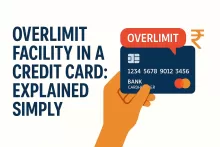How Union Budget 2025: Impact on Your Credit Card Strategy

How Union Budget 2025’s Income Tax Slabs Will Affect Your Credit Card Strategy
The Union Budget 2025 has introduced new changes to the income tax slabs, giving taxpayers a chance to boost their savings and manage their finances more efficiently. These changes will likely lead to an increase in disposable income, which opens up fresh opportunities to rethink your credit card strategy. With more money at hand, you can focus on smarter spending, maximizing rewards, reducing debt, and making more financially savvy decisions. Let’s explore how the new tax slabs might influence your credit card choices and overall financial strategy.
Union Budget 2025: Income Tax Slabs
Here’s a breakdown of the new tax slabs for individual taxpayers under the new tax regime:
- Income up to ₹4 lakh: No tax
- ₹4 lakh to ₹8 lakh: 5% tax
- ₹8 lakh to ₹12 lakh: 10% tax
- ₹12 lakh to ₹16 lakh: 15% tax
- ₹16 lakh to ₹20 lakh: 20% tax
- ₹20 lakh to ₹24 lakh: 25% tax
- Above ₹24 lakh: 30% tax
Additionally, Section 87A offers a rebate of up to ₹60,000 for taxpayers with an income of less than ₹12 lakh, which can reduce your tax burden significantly.
1. More Disposable Income, More Spending Power
With lower tax rates for many income groups, you may find that you have more money available to spend. This extra income could lead to higher credit card usage as you make purchases for daily expenses, entertainment, or even luxury items.
What to do: Consider using your credit card for everyday purchases. Many cards offer rewards or cashback for categories like groceries, fuel, or online shopping. With more disposable income, you can quickly pay off the balance, avoiding interest charges.
2. Maximize Rewards with Your Extra Income
Higher disposable income means more potential for earning rewards through credit card spending. The additional income may encourage you to make larger purchases or travel more frequently, making credit card rewards programs even more valuable.
What to do: Focus on using credit cards that offer bonus rewards in the areas you spend the most, such as travel or dining. If you plan to go on a vacation, consider using a travel rewards card to earn points for flights or hotels. If dining out is a frequent activity, find cards that provide higher rewards in this category.
3. Use Extra Income to Clear Credit Card Debt
If you’re carrying credit card debt, the increase in disposable income presents a great opportunity to pay it down faster. Since credit card debt often comes with high interest rates, paying it off quickly can save you money in the long run.
What to do: Use the extra income to pay off any existing high-interest credit card debt. If you have multiple cards, consider consolidating your debt to a card with a lower interest rate or transferring balances to a 0% APR card, if available.
4. Take Advantage of Credit Card Sign-Up Bonuses
With more income at your disposal, it’s easier to meet the spending requirements for credit card sign-up bonuses. Many cards offer significant rewards for new customers who meet a minimum spend within the first few months of activation.
What to do: Look for credit cards that offer large sign-up bonuses and choose one that aligns with your spending habits. For example, if you plan to travel, consider a travel rewards card with a generous bonus that can help you earn points towards flights or accommodations.
5. Increase Your Credit Limit
As your income increases, you may become eligible for a higher credit limit. A higher credit limit can be helpful for larger purchases, but it also has the added benefit of improving your credit score by lowering your credit utilization ratio (the percentage of your available credit you’re using).
What to do: If you’re earning more, request a credit limit increase. A higher limit can give you more flexibility in managing larger purchases while keeping your credit utilization ratio low, which is good for your credit score.
6. Plan for Tax-Saving Investments with Credit Cards
With the increased disposable income, you may be more focused on tax-saving investments. Some credit cards provide benefits for transactions related to tax-saving instruments like ELSS (Equity Linked Savings Scheme) or PPF (Public Provident Fund), which can also help you reduce your taxable income.
What to do: Use your credit card to make investments in tax-saving instruments, such as ELSS or PPF, especially as the end of the financial year approaches. Some cards may even offer rewards or cashback for these transactions, helping you earn benefits while saving on taxes.
7. Be Responsible with Your Spending During Tax Season
Although you might feel tempted to splurge with your extra income, it’s important to remain financially disciplined, especially during tax season when big payments might be due. Always strive for a balance between enjoying your increased income and being mindful of your financial goals.
What to do: While it’s okay to spend a bit more with the added income, make sure to avoid overextending yourself. Stick to a budget, and prioritize paying off your credit card balance in full to avoid interest charges. This will help you stay on track financially.
Conclusion
The Union Budget 2025’s new tax slabs present a great opportunity to optimize your credit card strategy. With more disposable income, you can use credit cards more effectively—whether to earn rewards, pay off existing debt, or even fund tax-saving investments. The key is to use your credit cards responsibly, avoiding overspending while taking full advantage of the rewards and benefits they offer.
By aligning your credit card usage with your financial goals, you can make the most of the extra income from the tax savings, while improving your credit score and overall financial health. Stay smart with your spending, and always aim to pay off your balance in full to enjoy the full advantages of your credit card strategy.




Leave a Reply